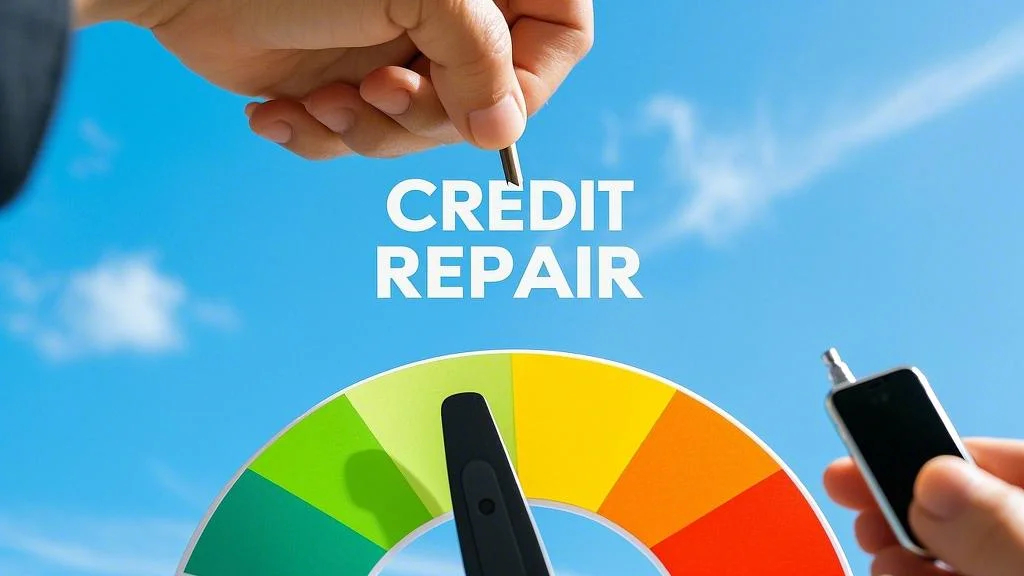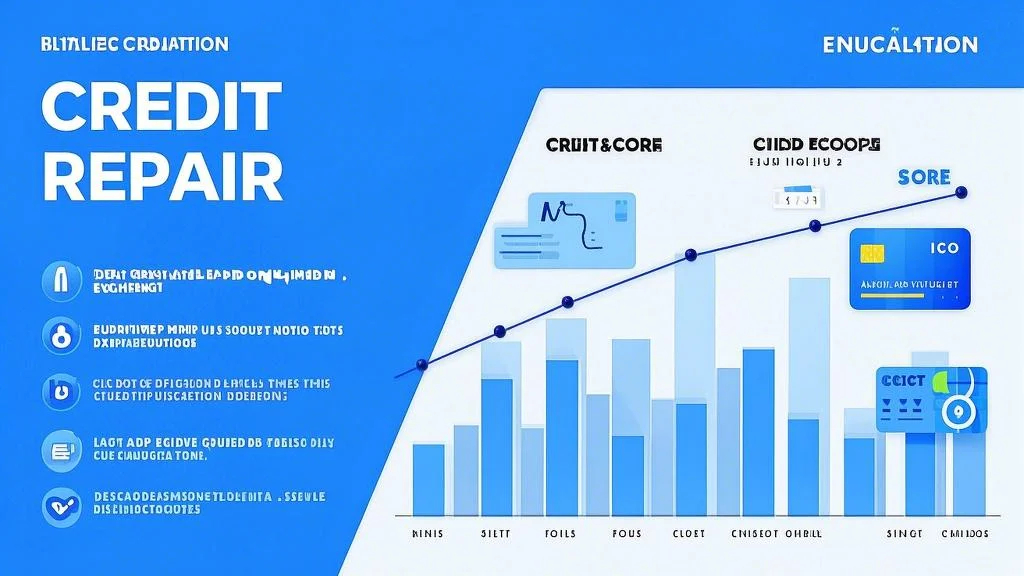Best Credit Repair Strategies to Boost Your Score Fast

Why Credit Repair Is Essential for Financial Health
Your credit score is one of the most important factors in your financial life, influencing everything from loan approvals to interest rates and even job opportunities. For those looking to improve their financial standing, best credit repair strategies are essential. Credit repair involves identifying and addressing issues on your credit report, such as errors, late payments, or high credit utilization, that may be dragging down your score. By taking proactive steps to repair your credit, you can boost your score quickly and unlock better financial opportunities. Whether you’re planning to buy a home, apply for a loan, or simply improve your financial health, credit repair is a critical first step.
One of the key benefits of credit repair is its ability to provide immediate improvements to your credit score. For example, correcting errors on your credit report or paying down high balances can result in a noticeable boost in just a few months. Additionally, credit repair can help you develop better financial habits, such as making timely payments and managing your credit utilization, which can have a long-term positive impact on your score. By working with a reputable credit repair service or taking a DIY approach, you can take control of your credit and set yourself up for financial success.
How to Improve Your Credit Score Quickly
If you’re looking to improve your credit score fast, there are several strategies you can implement. One of the most effective methods is to review your credit report for errors and dispute any inaccuracies. Errors on your credit report, such as incorrect account information or fraudulent activity, can significantly lower your score. By disputing these errors with the credit bureaus, you can have them removed, resulting in an immediate boost to your score. Additionally, paying down high balances and reducing your credit utilization can have a significant impact. Credit utilization, or the percentage of your available credit that you’re using, is a key factor in your FICO score. Keeping this ratio below 30% is ideal, but aiming for 10% or lower can provide an even greater boost.
Another effective strategy for improving your credit score is to make timely payments on all your accounts. Payment history is the most important factor in your credit score, accounting for 35% of your FICO score. Even one late payment can have a significant negative impact, so it’s essential to pay all your bills on time. Setting up automatic payments or reminders can help ensure you never miss a due date. Additionally, consider becoming an authorized user on a family member’s credit card or opening a secured credit card to build positive credit history. By implementing these strategies, you can see a noticeable improvement in your credit score in a relatively short period.

The Importance of Credit Score Monitoring
Regular credit score monitoring is a crucial part of maintaining and improving your credit health. By keeping a close eye on your credit score, you can quickly identify any changes or potential issues that may be affecting your score. Many credit monitoring services offer real-time alerts for changes to your credit report, such as new accounts, late payments, or inquiries. This allows you to address any issues promptly and take steps to protect your credit. Additionally, credit monitoring can help you track your progress as you work to improve your score, providing motivation and insight into which strategies are most effective.
One of the key benefits of credit score monitoring is its ability to detect fraud or identity theft early. If you notice unfamiliar accounts or inquiries on your credit report, it could be a sign that someone is using your information fraudulently. By catching these issues early, you can take steps to resolve them before they cause significant damage to your credit. Additionally, credit monitoring services often provide access to your credit report and score, allowing you to stay informed about your credit health. By incorporating credit monitoring into your financial routine, you can take control of your credit and ensure your score remains on track.
Credit Utilization Tips for a Higher FICO Score
Your credit utilization ratio is one of the most important factors in your FICO score, accounting for 30% of your overall score. This ratio measures the amount of credit you’re using compared to your total available credit, and keeping it low is essential for a high score. Ideally, you should aim to keep your credit utilization below 30%, but for the best results, aim for 10% or lower. One effective strategy for reducing your credit utilization is to pay down high balances on your credit cards. This not only lowers your utilization ratio but also reduces the amount of interest you’ll pay over time.
Another credit utilization tip is to request a credit limit increase. By increasing your available credit, you can lower your utilization ratio without reducing your spending. However, it’s important to use this strategy responsibly, as increasing your credit limit can tempt you to spend more. Additionally, consider spreading your balances across multiple cards to keep your utilization low on each account. By managing your credit utilization effectively, you can improve your FICO score and unlock better financial opportunities.
FICO Score Improvement: Long-Term Strategies for Success
While quick fixes can provide a temporary boost to your credit score, long-term FICO score improvement requires consistent effort and good financial habits. One of the most important steps is to maintain a history of timely payments. Payment history is the most significant factor in your FICO score, so making all your payments on time is essential. Setting up automatic payments or reminders can help ensure you never miss a due date. Additionally, avoid opening too many new accounts at once, as this can result in multiple hard inquiries and lower your score.
Another key strategy for FICO score improvement is to diversify your credit mix. Having a variety of credit types, such as credit cards, installment loans, and mortgages, can positively impact your score. However, it’s important to only take on credit that you can manage responsibly. Additionally, keep old accounts open, even if you’re not using them, as a longer credit history can improve your score. By implementing these long-term strategies, you can achieve a higher FICO score and enjoy the financial benefits that come with it.